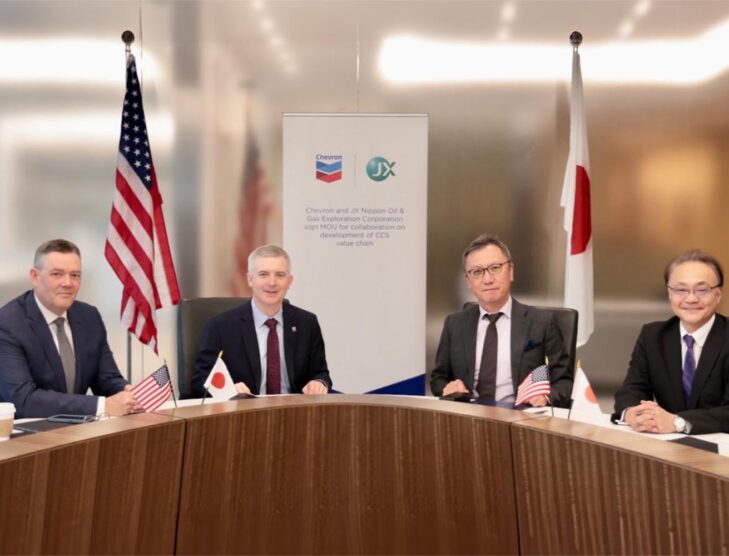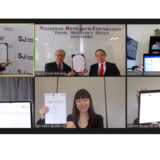
JX Nippon Oil and Chevron to develop the CCS value chain in Asia-Pacific
JX Nippon Oil & Gas Exploration Corporation (JX), a leading Japanese company engaged in the exploration, development, and production of oil and natural gas and a core company of the ENEOS Group, announced a collaborative effort with Chevron New Energies, a division of Chevron U.S.A. Inc., to develop the carbon capture and storage (CCS) value chain across the Asia-Pacific region.
The partnership, formalised through a memorandum of understanding (MOU), aims to explore the feasibility of exporting carbon dioxide (CO2) from Japan to CCS projects in Australia and potentially other countries within the region.
This initiative seeks to capture CO2 emissions from industrial activities in Japan, including those from JX’s affiliates, and transport them by ship to Chevron’s greenhouse gas storage facilities in Australia. The collaboration will also delve into the development of transboundary policies and the potential establishment of CO2 storage sites in other Asia-Pacific countries.
Chris Powers, vice president of Carbon Capture, Utilization, and Storage (CCUS) at Chevron, expressed enthusiasm about the partnership, highlighting the importance of large-scale CCS projects in achieving the Asia-Pacific’s lower carbon goals.
“We look forward to building off our long-standing relationship with JX and ENEOS Group, the largest Japanese global petroleum and metals conglomerate, and hope that this joint study ultimately contributes to the further development of large-scale CCS hubs throughout the Asia Pacific region,” he said.
“We believe large-scale CCS value chain projects will play a key role in advancing Asia Pacific’s lower carbon aspirations, and that long-term collaborations are necessary to meet these aspirations.”
Tetsuo Yamada, executive vice president of JX, underscored the significance of CCS in JX’s business strategy and its commitment to advancing lower carbon solutions.
“This MOU is achieved thanks to the significant oil and liquefied natural gas (LNG) relationship with Chevron that we have had over seven decades, and further demonstrates the commitment and dedication of the companies in helping advance lower carbon solutions,” said Yamada.
JX has positioned CCS as a crucial component of its “two-pronged” approach, focusing on conventional oil and natural gas development alongside decarbonisation initiatives centered on CCS/CCUS. The company aims to contribute to a carbon-neutral society by drawing on its extensive experience in CCS/CCUS-related businesses, including the Petra Nova CCUS project in Texas, U.S.A.
CCS is considered a critical technology for achieving significant reductions in CO2 emissions and is particularly relevant for heavy industries such as steel, cement, and chemical production, as well as for fossil fuel-based power generation. The process involves capturing CO2 emissions produced from the use of fossil fuels in electricity generation and industrial processes, preventing CO2 from entering the atmosphere. The captured CO2 is then transported, usually via pipelines, and securely stored in geological formations deep underground, such as depleted oil and gas fields or deep saline aquifer formations.
Chevron is involved in several significant projects in Australia, primarily focused on natural gas and liquefied natural gas (LNG), including the Gorgon Project, one of the world’s largest LNG projects and the Wheatstone Project in Western Australia which has a capacity to produce 8.9 million metric tons of LNG annually.





.png)







